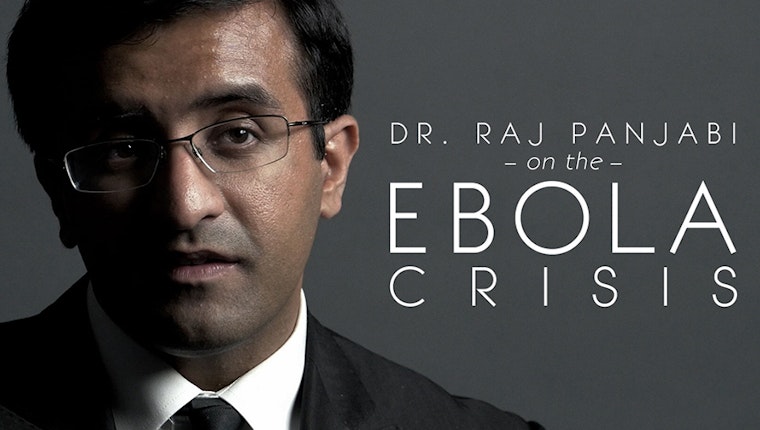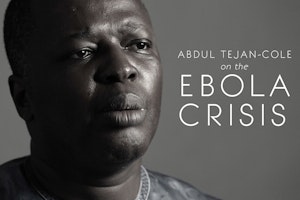Ebola’s Legacy Can Be a Thriving Community Health System
By Raj Panjabi

With war or a disease like Ebola, fear is natural. It seems like people all around you are dying. People you love, people you take care of, people who take care of you.
In such a context of enormous grief, it is human to imagine that these deaths are the result of a “curse” or conspiracy.
Much has been said of the local beliefs thwarting efforts to stop the spread of Ebola and to care for those who are already infected. Yet, such beliefs are eerily similar to hesitance in the United States around vaccination, and are a natural product of fear, distrust, and a lack of accurate information.
So how do we stop the spread of misinformation and ensure people go to Ebola Treatment Units or seek other forms of supportive care?
We start by letting it be known that Ebola can be a survival story.
To enable survival, we need to ensure consistent access to medicines, labs, and supportive care. Through this improved quality of care—one that focuses on support rather than quarantine—we can combat fear and stigma.
In fact, the best way to stop superstition and fear is actually to provide the best possible care for people.
Supplies alone are not enough to enable the best care. Most importantly, we need local community health workers who can build relationships with community members based on trust. We know that community members want to help. My colleague, Paul Farmer, indicated that 300 people showed up to an Ebola Treatment Unit to work. This demonstrates how we may exaggerate the stigma and underestimate the willingness of people to get involved in fighting this disease.
By recruiting, training, and mentoring local village residents to become professional community health workers, those falling sick in remote villages are able to access care for the very first time. Through building relationships across the community, we will ensure villagers are turning to the primary health center for treatment, rather than turning away from it. Not only will we continue to treat patients for malaria, pneumonia, and diarrhea, but we will be more likely to have villagers infected with Ebola seek care, and go on to survive.
Indeed, Ebola survivors could be a new frontline of response. Ebola survivors, including mothers and sisters who are often community caregivers, can be a key component of Ebola response. Not only do those who recover have an intimate stake in curbing the epidemic, but they also show us it is possible to have Ebola, and survive. A survivors’ network makes it clear that Ebola doesn’t have to be a fatal disease.
Ebola has spread fiercely because in countries such as Liberia, where 51 doctors were left to care for a country of 4 million after the war, villagers have been left without access to care. The public health system had been shattered. As we fight Ebola, we need not only to address the current challenge but also envision and build a new infrastructure for community health.
Ultimately strengthening health systems will not only end the current epidemic, but it will prevent future epidemics from recurring. We can do this by deploying professional community health workers, who are providing consistent quality of care and are linked to local health centers.
At the age of nine, I fled Liberia as it was gripped by war. I returned to support my community because I believe that no lives matter more than others. Access to health care should not only be a basic right—it can also be a building block for community.
Let’s use this crisis to create long-lasting change—a community health system where every person, even those living in last mile villages, has an equal chance at health and survival.
If we do so, we will not only have fought Ebola, we will have made possible a new future based on access to care, strengthened health systems, and resilient communities.
Last Mile Health is a grantee of the Open Society Foundations.
Raj Panjabi is the CEO of Last Mile Health.


